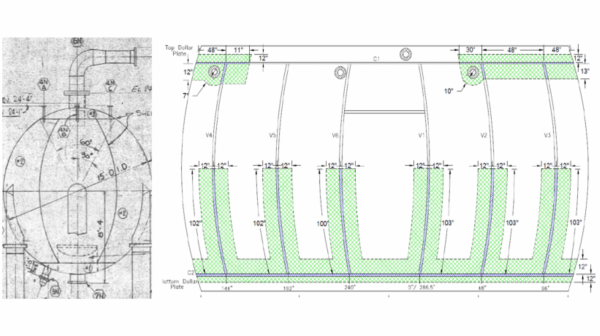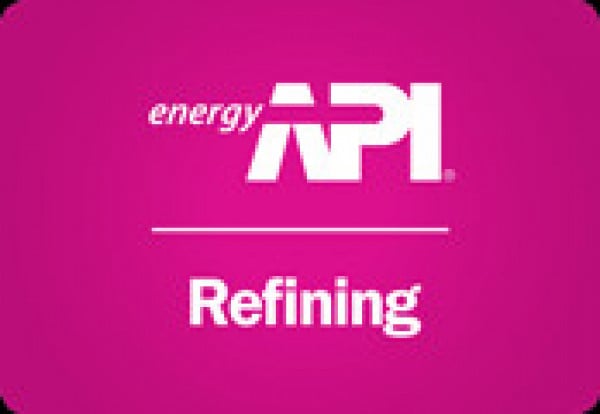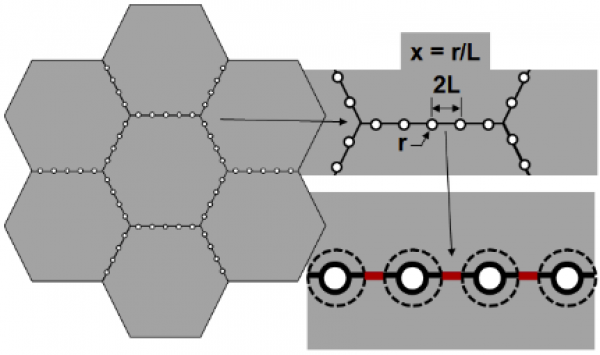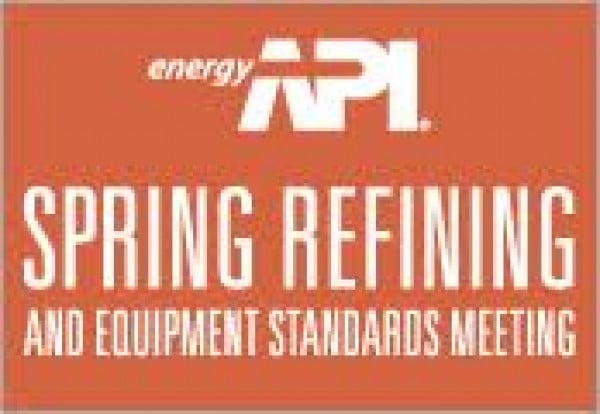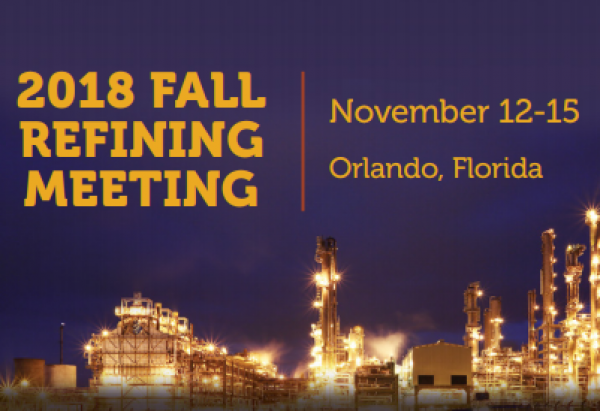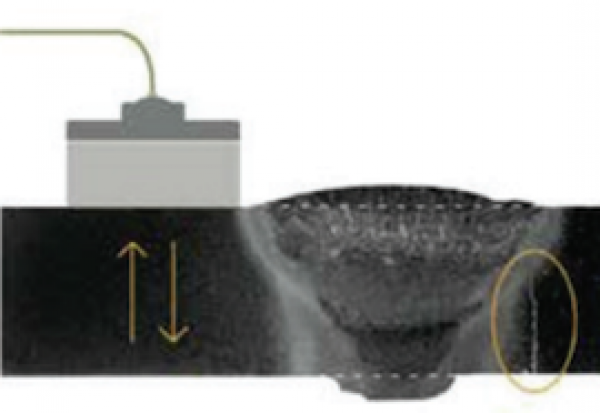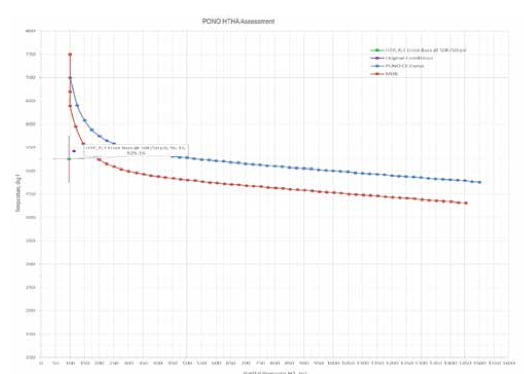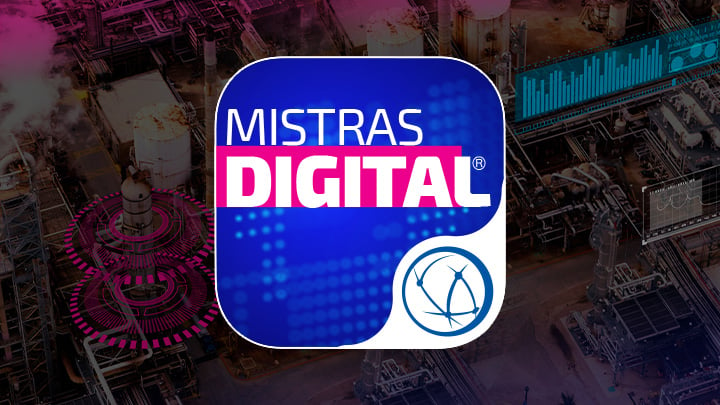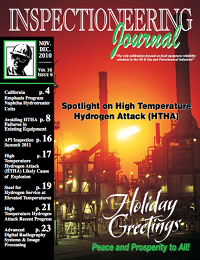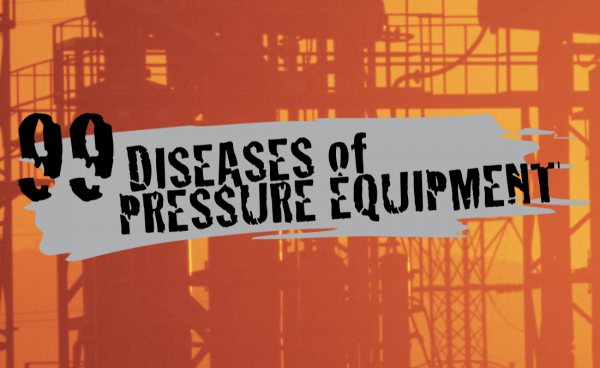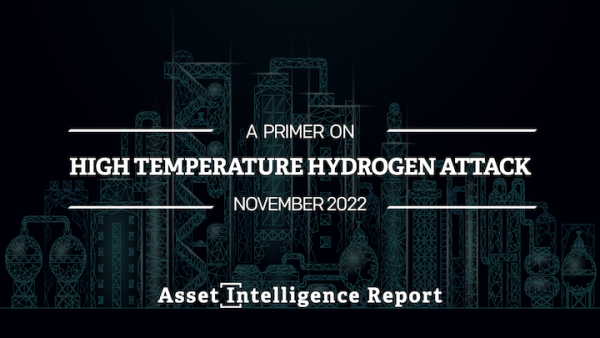API RP 941, Steels for Hydrogen Service at Elevated Temperatures and Pressures in Petroleum Refineries and Petrochemical Plants, is a recommended practice developed and published by the American Petroleum Institute (API). This RP is intended to help owner-operators identify and manage equipment potentially subject to high temperature hydrogen attack (HTHA) by putting into place practical operating limits for carbon and low alloy steels in hydrogen service at elevated temperatures and pressures. This RP also discusses how the resistance of steels to hydrogen damage can be affected by high stress, heat treating, chemical composition, and cladding. A summary of inspection methods to evaluate equipment for the presence of HTHA is also included. API RP 941 was originally published in 1997, and the most recent 8th Edition was published in February of 2016.
API RP 941 applies to any equipment in refineries, petrochemical facilities, chemical facilities, or hydrogenation plants that happen to operate in environments in which hydrogen-containing fluids are processed at elevated temperatures and pressures. The guidelines in this RP can also be applied to hydrogenation plants such as those that manufacture ammonia, methanol, edible oils, or higher alcohols.
API RP 941 only covers equipment that runs at high temperatures and does not cover any equipment that runs at below 400°F (204°C). At those lower temperatures, hydrogen enters the steel due an electrochemical mechanism, which operates under different principles. Furthermore, this RP only covers HTHA resistance for steels operating within the recommended guidelines. Other damage mechanisms or corrosives present in the process stream, as well as potential damage caused by rapid cooling of the metal after it has been removed from high temperature, high-pressure hydrogen service, can still be a problem and must be properly managed to prevent mechanical integrity issues.
Related Topics
- API 560 - Fired Heaters for General Refinery Service
- API 579-1/ASME FFS-1 - Fitness-For-Service (FFS)
- API 594 - Check Valves: Flanged, Lug, Wafer, and Butt-Welding
- API 620 - Design and Construction of Large, Welded, Low-Pressure Storage Tanks
- API 650 - Welded Tanks for Oil Storage
- API 660 - Shell-and-Tube Heat Exchangers
- API 661 - Petroleum, Petrochemical, and Natural Gas Industries Air-Cooled Heat Exchangers
- API RP 1160 - Managing System Integrity for Hazardous Liquid Pipelines
- API RP 1173 - Pipeline Safety Management Systems
- API RP 1176 - Assessment and Management of Cracking in Pipelines
- API RP 1188 - Hazardous Liquid Pipeline Facilities Integrity Management
- API RP 538 - Industrial Fired Boilers for General Refinery and Petrochemical Service
- API RP 571 - Damage Mechanisms Affecting Fixed Equipment in the Refining Industry
- API RP 572 - Inspection of Pressure Vessels
- API RP 573 - Inspection of Fired Boilers and Heaters
- API RP 574 - Inspection Practices for Piping System Components
- API RP 575 - Inspection Practices for Atmospheric and Low Pressure Storage Tanks
- API RP 576 - Inspection of Pressure-Relieving Devices
- API RP 577 - Welding Processes, Inspection, and Metallurgy
- API RP 578 - Material Verification for New and Existing Alloy Piping
- API RP 580 - Risk Based Inspection (RBI)
- API RP 581 - Risk Based Inspection Technology
- API RP 583 - Corrosion Under Insulation and Fireproofing
- API RP 584 - Integrity Operating Windows
- API RP 585 - Pressure Equipment Integrity Incident Investigation
- API RP 651 - Cathodic Protection of Aboveground Petroleum Storage Tanks
- API RP 75 - Safety and Environmental Management System for Offshore Operations
- API RP 751 - Safe Operation of Hydrofluoric Acid Alkylation Units
- API RP 754 - Process Safety Performance Indicators for the Refining and Petrochemical Industries
- API RP 934 - Materials and Fabrication of Heavy Wall Pressure Vessels for High-Pressure Hydrogen Ser
- API RP 939-C - Guidelines for Avoiding Sulfidation (Sulfidic) Corrosion Failures in Oil Refineries
- API RP 970 - Corrosion Control Documents
- API RP 982 - Inspection and Assessment of Refractory Linings
- International Organization for Standardization (ISO)
Relevant Links
Topic Tools
Share this Topic
Contribute to Definition
We welcome updates to this Integripedia definition from the Inspectioneering community. Click the link below to submit any recommended changes for Inspectioneering's team of editors to review.
Contribute to Definition


